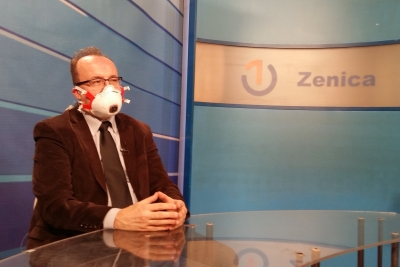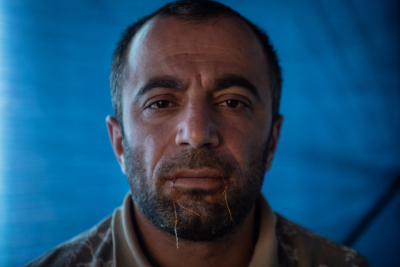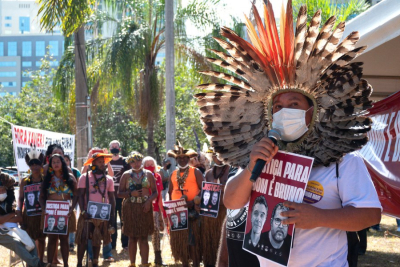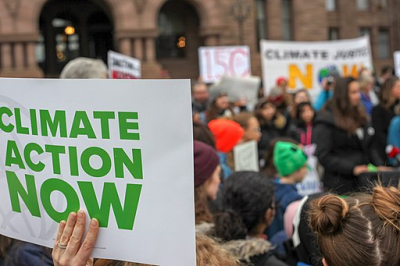Masked man fighting for justice, academic values, and non-lethal air
The Balkan country of Bosnia and Herzegovina (BiH) is officially composed of two entities-- the Federation of Bosnia and Herzegovina and Republika Srpska. On top of that, there is the Brcko District, which is governed by neither entity and functions under the decentralized system of local government. In that way, the state institutions are often tripled, which makes the transparency of particular cases even less possible.
This story consists of four parties that are linked through and through.
A paper of a questionable reliability
The head of the Permission Department at the Ministry of Environment and Tourism of the Federation of BiH, Mirjana Kovac, wrote the master's thesis in 2013. The master's thesis was regarding dioxide (SO2) in the air in Zenica, which is heavily polluted and the country's third largest city, using computer simulation. Šefket Goletić and Jusuf Duraković from the University of Zenica and Azrudin Husika from the University of Sarajevo were professionally connected to ArcelorMittal when engaged in drafting the company's environmental permits in 2009.
All in all, back then, Ms. Kovac evaluated their plan for the environmental permit; four years later, the very same professors assessed the thesis.
Poisonous air of Zenica
ArcelorMittal is the world's largest steel producer and one of the largest and most profitable corporations globally, and yet, at the same time, the company has been labeled the largest air polluter in many countries by NGO group analyses.
The factory in Zenica, the capital of the Zenica-Doboj Canton, is not any different. The vast Zenica steelworks owned by Lakshmi Mittal operates without valid environmental permits and too often exceeds the emissions limits. In 2015, levels of SO2 exceeded EU safe limits 166 times. ArcelorMittal's failed to introduce environmental improvements to the steel giant when they bought the plant over a decade ago.
Confusion over the misused date
When Kovac's evaluation of the sulfur dioxide concentration in the air was finally published, the public was given a "reliable" scientific resource stating that the ArcelorMittal steelworks was responsible for 10-15% of the total SO2 concentration in Zenica's air. Little did they know, this was not true.
Yet another professor at Zenica University, Samir Lemeš, being both an environmental activist and a former president of the local NGO Eco-forum Zenica, soon questioned the results. He figured out that wrong numbers were used as input data for the simulation. The real results from emission monitoring were not used; instead, the amounts included in the plans for the environmental permit were used. The actual emissions were much higher than those planned and permitted, and the simulation results were significantly underestimated by the air pollution, which is directly attributable to ArcelorMittal.
But, when Lemeš warned his colleagues about these flaws, underscoring the likely misuse of the results by ArcelorMittal as "scientific proof" they do not pollute too much, he was ignored. Not even his official appeal to the Ethics Committee of the University of Zenica regarding the violation of the Ethical Code and the resulting conflict of interests, counterfeiting, and production resulted in any kind of response.
As expected, ArcelorMittal did misuse the thesis results. In a TV program about air pollution broadcast a few months later, the head of ArcelorMittal's environmental department claimed their 10-15% air pollution contribution was factual.
Defamation or Whistleblowing?
A journalist from the newspaper "Oslobođenje" interviewed Lemeš in November of 2013 regarding corruption and business relations with ArcelorMittal.
The Zenica court case lasted almost three years, and the court decided in December 2016 that no defamation had taken place. Lemeš was not only allowed to expose this case to the public, but as the president of an environmental NGO and member of the academic community, he was obliged to do so.
In March of 2017, the cantonal court confirmed the ruling, but, at the same time, ordered the whistleblower to pay the cost of the case. In May 2017, the claimants submitted an appeal for the revision of the Supreme Court of the Federation of BiH, and this case is still under way.
Samir Lemeš's case demonstrates that any attempt to expose environmental fraud and cronyism in BiH may have consequences for the whistleblowers. In this case, Lemeš was ordered to cover the costs of the case, even though the court found his actions legal and legitimate.





